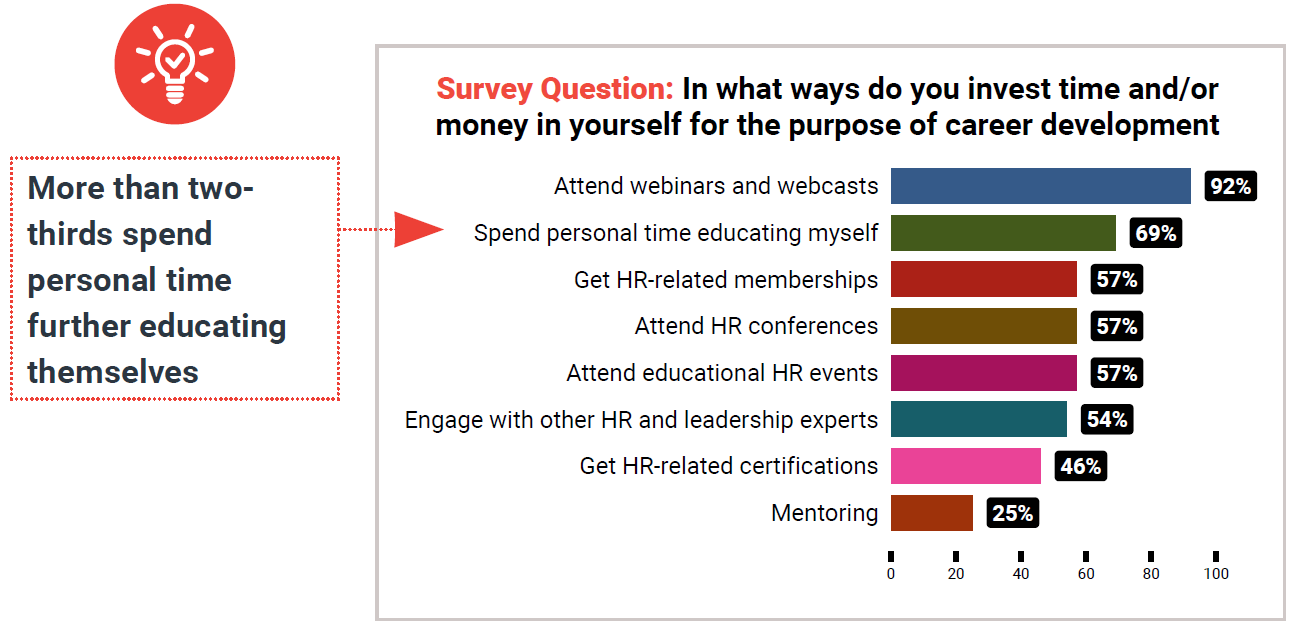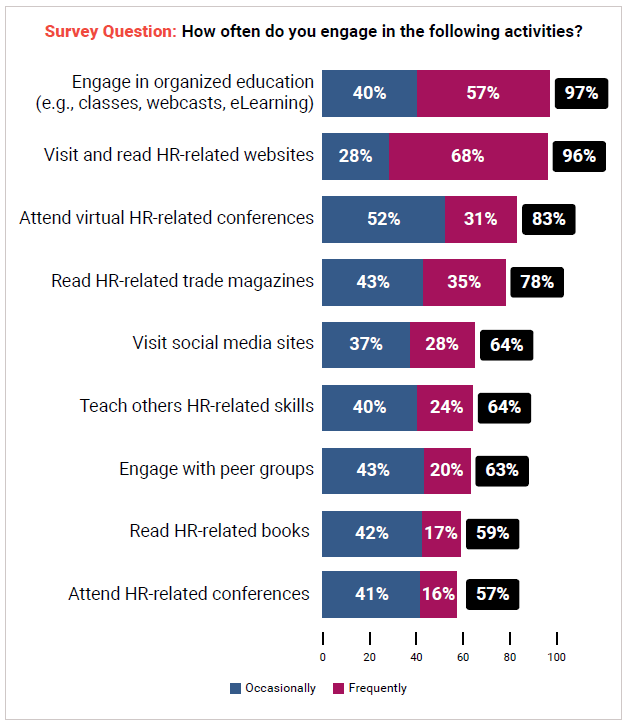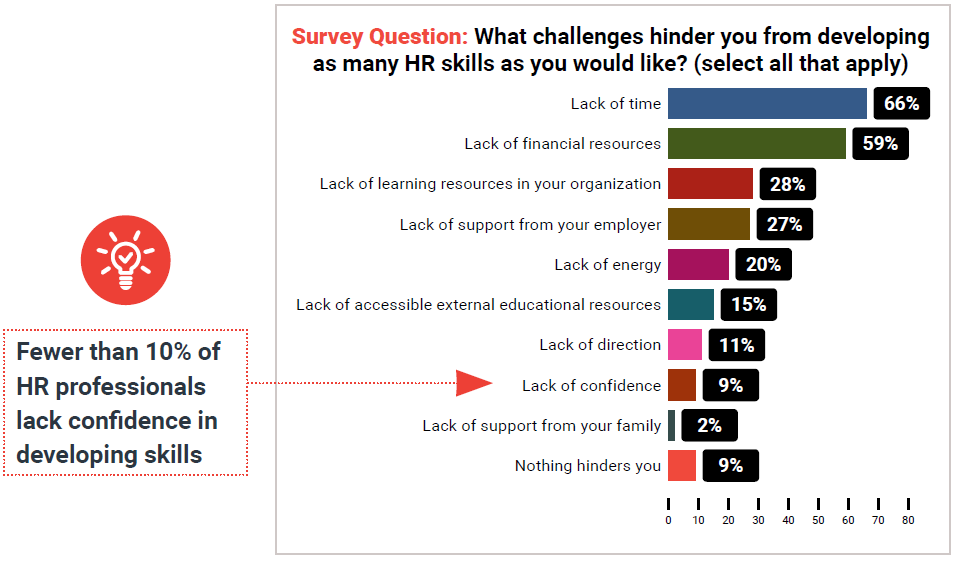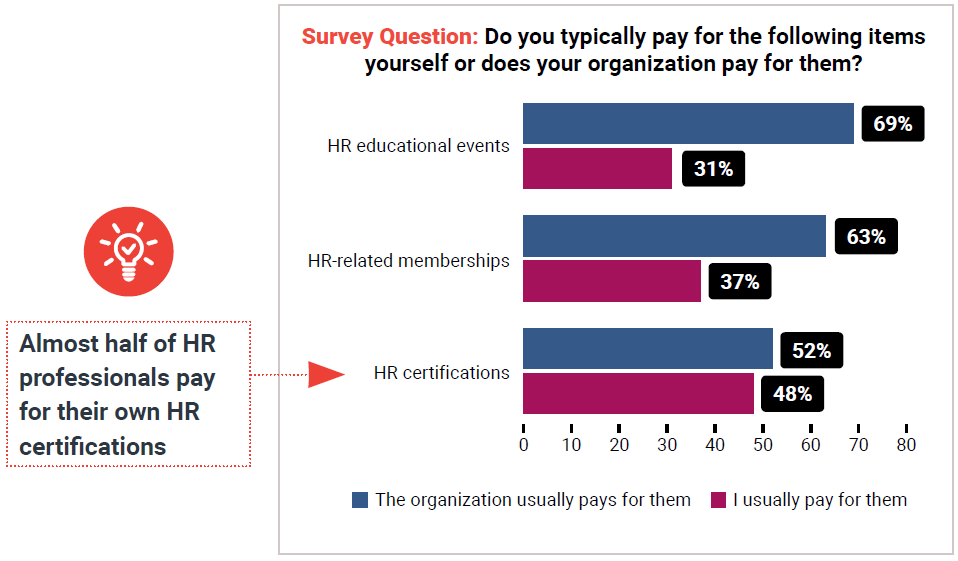
HR professionals invest their time and money in a wide variety of career development options
We asked respondents about the ways in which they might invest their time and/or money in their career development. Among the options we provided, the most widely cited way that HR professionals invest time and money in their own career development is by attending webinars, chosen by 92% of respondents. This is, of course, a form of spending time on their education, and the time they spend isn’t always “on the clock.” Indeed, more than two-thirds (69%) state that they spend personal time educating themselves.
More than half also develop their careers via:
· getting HR-related memberships
· attending conferences and other HR educational events
· engaging with other HR and leadership experts
In short, many HR professionals are ambitious and diligent about investing in career development.
Organized and on-line learning are the most frequent sources of learning
We also asked respondents how often they use various activities to enhance their skills. We asked participants whether they frequently, occasionally, rarely or never use these sources. When we look only as the “frequently” data, we discovered that over two-thirds (68%) say they frequently visit and read HR-related websites. This is the most commonly report educational activity. Fifty-seven percent frequently engage in organized learning (e.g., classes, webcasts, and e-learning). These were the only two activities reported as frequently used.
But HR professionals engage in many other activities either frequently or occasionally. For example, we found that 83% attend virtual HR conferences and 78% read HR-related trade magazines frequently or occasionally.
The positive news is that HR professionals frequently and/or occasionally rely on mixed learning sources to stay ahead in their rapidly developing profession. The harder consideration is how to best target the time and resources available for professional development. There are hundreds of good options. Even just reading new HR –related articles and books could easily become a full-time job. So, it makes sense for HR professionals to choose the best options for their own professionals needs. We recommend sources that can provide multiple complementary options. For example, some webcasts provide certification credits and some HR networking sites also provide other educational options such as online HR coursework.
The lack of time and money are viewed as the top two challenges to developing HR skills
The large majority (91%) of HR professionals indicate that there are hindrances to developing as many skills as they would like. The top two most widely cited hindrances boil down to time and money. Sixtysix percent cite lack of time and 59% cite a lack of financial resources. These are the only two options selected by a majority of respondents.
Lack of time is, of course, understandable, especially during the present times. HR is facing a host of critical priorities, from dealing with work-athome support to finding talent in a tight labor market. This leaves less time for development.
Employers are more likely to pay for events and memberships than for certifications
Although significant majorities of HR professionals say their organizations pay for HR educational events (69%) and HR-related memberships (63%), only 52% say they pay for certifications. Perhaps this related to cost. Even if we confine ourselves solely to application and exam fees, certifications costs can be hundreds of dollars. Another issue may be that, as we reported earlier, certifications are often earned with the goal of making the HR professional more competitive in their professional marketplace. As such, certifications may be an investment that HR professionals are more willing to make in themselves even if their employer is not.
When it comes to attending educational events, organizations seem to be more generous. Sixty-nine percent of these events are paid for by the company, 31% by the employee. The same holds true for HR-related memberships. Sixty-three percent are paid for by the employer, and 37% by the employee themself.



